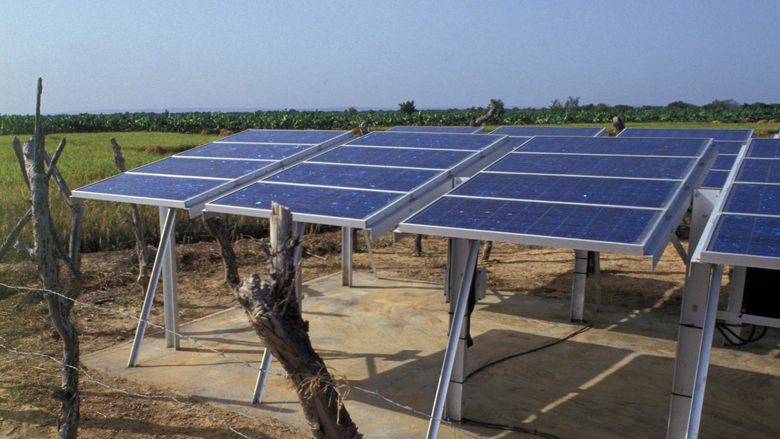The investment will diversify Malawi’s energy mix and help to address the gap between supply and demand, while lowering emissions in the power sector with the addition of a clean energy source.

Photo shown is for illustration purpose only.
Photo: ©Curt Carnemark/World Bank
Project Background
With some of the lowest electrification rates in the world, lack of access to adequate and reliable electricity supply has long been a major constraint on economic development and poverty alleviation in Malawi. Only 11 percent of Malawi’s population has access to electricity and that supply is not always reliable. With 98 percent of the total installed generation capacity in Malawi dependent on hydropower, electricity supply is especially vulnerable to the impacts of climate change, as droughts become more frequent.
Support from the Multilateral Investment Guarantee Agency (MIGA) and International Development Association’s Private Sector Window (IDA PSW) will help diversify Malawi’s energy source away from hydropower generation by adding another renewable source in the energy mix and increasing installed capacity to close the supply-demand gap.
Project Objectives
The project consists of the development, construction, and operation of a new solar photovoltaic (PV) plant in the Salima province of Malawi. Tapping into the country’s particularly high solar power potential, the project will add approximately 60 megawatts (MW) of installed capacity, increasing Malawi’s total supply by more than 12 percent. Furthermore, the project introduces a new renewable energy source, helping to diversify Malawi’s energy away from solely hydropower generation.
Rationale for Using Concessional Funding
Given the risks associated with the project, the support of IDA PSW was necessary to help remove MIGA’s participation constraints and for the project to move forward. For MIGA’s first engagement in Malawi, it offered the project’s sponsors guarantees against transfer restriction and breach of contract. IDA PSW supported the transaction through first loss coverage for MIGA’s guarantee, which enabled MIGA to offer the guarantee by helping reduce the risk-capital allocated to the project. In turn, MIGA provided the investors the needed confidence to commit long-term resources in the project. IDA PSW’s support is necessary due to Malawi’s high-risk operating environment, untested ground for Independent Power Producers (IPPs), and low levels of institutional capacity, particularly in the context of infrastructure investments.
Transaction Structure
MIGA provided the equity sponsors with guarantees of up to US$59 million against the risks of Transfer Restriction and Breach of Contract for a period of up to 20 years.
The IDA PSW is supporting the MIGA guarantee by participating in a 40 percent shared first-loss layer with a US$23.6 million allocation from the MIGA Guarantee Facility (MGF).
Impact on Markets
The project will provide much needed diversification to Malawi’s energy mix and help close the gap between supply and demand. It is also expected to lower carbon emissions in the power sector through the addition of a clean energy resource to the electricity generation mix, avoiding approximately 35,000 tons of CO2 emissions annually between 2020 and 2039.
With an improved supply of electricity, an important constraint for scaling up private investments in Malawi will be alleviated. The project is among the first IPPs in the country and is expected to contribute to increasing investor confidence in the energy sector.
The project is well aligned with World Bank support for Malawi, including the Bank’s commitment to climate change co-benefits, renewable energy development, and IDA’s Special Themes of Climate and Jobs and Economic Transformation. It is also a leading example of the World Bank Group’s Maximizing Finance for Development, or Cascade, strategy which prioritizes private sector solutions, where available, over public sector financing to address development issues.
MIGA Guarantee Facility-supported projects are made possible thanks to close cooperation from multiple teams across MIGA and IDA.